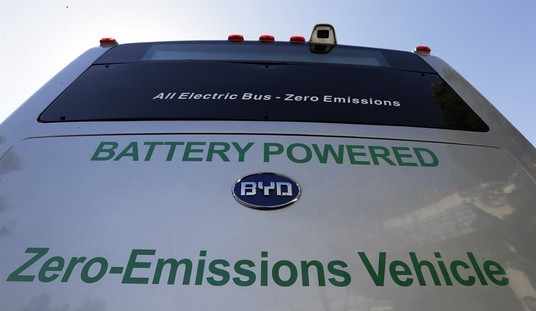Let’s face it; at some point in time most of us have hijacked an unencrypted wireless connection to the Internet. We’ve done it because we’re pressed for time, or stuck in a boring place outside the home — or in Helen Rubinstein’s case, because her neighbor didn’t know any better than to leave a network unencrypted so that anyone could peek at the activity and/or use it for themselves. Most of us know that hijacking someone’s Internet connection for our own traffic isn’t very nice, but Rubinstein seems to think that free access should be an entitlement:
FOR a long time, I relied on my Brooklyn neighbors’ generosity — that is, their unsecured wireless networks — every time I connected to the Web.
Well, let’s stop here for a moment. Generosity is an explicit act. If Rubinstein’s neighbors invited her to use their network, that would be generosity. Exploiting their foolishness to avoid paying for an Internet connection isn’t receiving generosity, it’s called taking advantage of her neighbor.
After the owners of the Belkin_G-Plus_MIMO network wised up and locked their network from intruders, Rubinstein didn’t feel pangs of remorse. Instead, she rationalized the previously free access as a gift:
Suddenly disconnected, I realized how lucky I’d been all those years, having that tremendous body of information and awesome communication technology at my fingertips, all basically free. It may have been unfair, but I don’t believe I was stealing: the owners’ leaving their networks password-free was essentially a gift, an ethereal gesture of kindness. Sometimes I’d imagine my anonymous benefactors, those people behind Netgear 1 or belkin54g, thinking, “Well, I have Internet to spare.”
And, really, who doesn’t? Home wireless networks can usually support five or more computers, yet there are only about 1.4 computers per American household.
Again, it’s only a gift if it’s actually given to you. The rationalization about spare bandwidth is laughable. I’m off my computer for several hours a day (no, really, honey, I am), but when I work, I need the bandwidth I have. My network can support a lot more than five computers, but when I need to access video, I’d like to make sure that I’m not having to share my bandwidth with a neighbor who is too cheap to buy his own Internet access. That’s why I pay for my bandwidth, and why I encrypt my network signal — apart from the obvious security issues of having my personal business exposed to everyone with a laptop.
Rubinstein resisted buying her own Internet access after her neighbor decided to act selfish and deny her a free surfing connection. Why? Because she feels entitled to it, and wonders why people don’t just allow her to redistribute the wealth:
Paying for Internet access, after all, isn’t like paying for cable TV, where cable providers pay cable networks in turn. My establishing a new network instead of sharing with neighbors does nothing to benefit the Web sites whose content benefits me and whose value to advertisers is based on views and visits.
Nor is it like paying for phone service, where the physical object that makes and receives calls is inseparable from your unique number. My e-mail address is utterly portable: it’s not bound to an I.P. address or one computer — and, like the vast majority of the Internet’s services and information, it’s free. …
In an ideal world, the Internet would be universally available to anyone able to receive it. Promisingly, the Federal Communications Commission in September announced that it would open up unused analog airwaves for high-speed public wireless use, which could lead to gratis hotspots spreading across cities and through many rural areas.
Er, pardon me for noting the painfully obvious, but the infrastructure that provides access to the Internet is most assuredly not free. It costs telecoms billions of dollars each year to maintain these private networks and build bigger bandwidth to compete with each other for customers. It’s one reason why consumer costs associated with access depend on bandwidth demands. The “gratis” hotspots will still have costs; it’s just that those costs will get covered by taxpayers in order to redistribute the bandwidth to people who are either unable — or apparently in Rubinstein’s case, unwilling — to pay for it.
For that matter, a number of retailers (especially in the food industry) offer free wi-fi services to their customers as a way to attract business. Why doesn’t Rubinstein go to one or more of those? Apparently because she not only wants to mooch her Internet access, she wants it delivered to her home, too. Her column is the epitome of an entitlement mentality that convinces its victims that the services or goods they most desire should be provided to them on a silver platter without thinking once about the consequences of that kind of policy.
Those who still insist on hijacking bandwidth through open networks may want to watch this warning, first aired in August 2009, about who might be behind these supposedly “generous” network owners. It’s not only a lot more honest to provide your own Internet access, it’s a lot more safe as well:








Join the conversation as a VIP Member